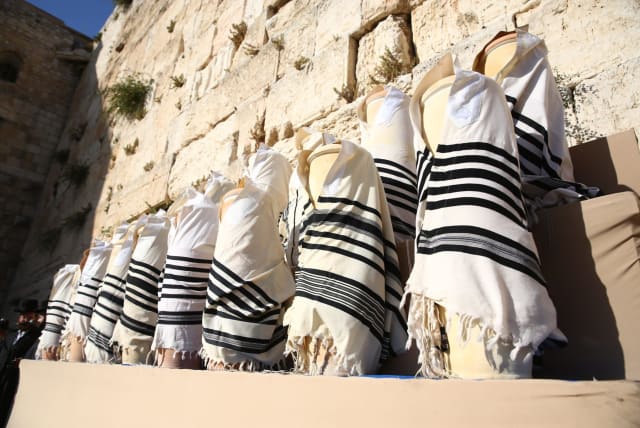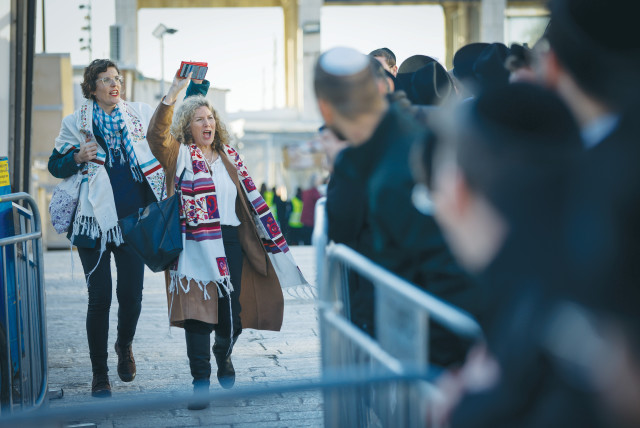Israeli bill seeks to revive Western Wall compromise after six years

A significant change was proposed for the access to this "mixed" prayer area in the Kotel Compromise.
Yesh Atid MK Elazar Stern submitted a bill on Tuesday for the Knesset to embrace the Kotel compromise, after it was frozen and then canceled by the government six years ago.
Submitted together with fellow MK Moshe Tur-Paz, the purpose of the bill is to legislate the Kotel compromise through the Knesset – instead of through the government. All of the coalition parties would vote against it.“Six years ago, the outline of the Western Wall compromise was frozen [by the government],” Stern said. “Since then, the Kotel has become a scene of war and discord between the various streams of Judaism.”He shared that his suggested bill “will allow the maintenance of Orthodox prayer arrangements in the central plaza, along with egalitarian prayers in the southern plaza. Judaism belongs to all of us and we must make sure that no one takes ownership of it; that in our holiest site, religious freedom will be allowed for every Jew.”
The bill would legislate the outline of the Kotel plaza, which will allow “freedom of religion” at the Western Wall plaza, while promoting the establishment of a separate administration for the southern Kotel plaza, called Ezrat Yisrael, according to the bill’s explanatory text. The bill has been signed and supported by opposition leader and Yesh Atid head Yair Lapid, former minister and National Unity MK Chili Tropper, former minister and Yisrael Beytenu MK Oded Forer, Labor MK Gilad Kariv, and a few other MKs.
Tur-Paz added that “the Kotel belongs to everyone and it must not be a scene of religious conflict. The bill regulates the general extension and the egalitarian prayer plaza. It is fitting that [Prime Minister Benjamin] Netanyahu, who built the outline back in 2016, would work to promote it.”In January 2016, the government approved the Kotel compromise, which was supposed to address the concerns of both Orthodox and non-Orthodox denominations.
What is the history of the Knesset's Kotel Compromise bill?
Under the plan, the non-Orthodox “mixed” prayer area for men and women was set to be expanded in the southern part of the Western Wall, with a significant change proposed: it would have direct access from the main entrance to the Western Wall, not a side entrance.The plan also called for the establishment of a council that would include representatives from the non-Orthodox denominations as well as Women of the Wall. It would be responsible for overseeing the operations of the expanded prayer area.
Then, despite initial approval, the government backtracked from the plan in June 2017, following pressure exerted by the ultra-Orthodox parties, leading to a reversal of the previously agreed-upon compromise.The new bill has a number of interesting suggestions, such as a new role of “the person in charge of the southern prayer plaza,” someone who would be parallel to the current Western Wall rabbi, recommended by the prime minister, and it would be one of his staff members.
In addition, it suggests the establishment of a council that would be in charge of the egalitarian plaza, with 13 members, including the chairman of the Jewish Agency, who will chair the council. Other members would include the cabinet secretary, and the directors-general of the following ministries: Jerusalem and Heritage, Diaspora Affairs and Tourism; director of the Antiquities Authority; the person in charge of the southern extension (a member of the Prime Minister’s Office) and six representatives of the public, to be appointed by the prime minister “representing worshipers in the southern prayer plaza” – Reform, Conservative and other egalitarian religious leaders, of which at least three are women.
Jerusalem Post Store
`; document.getElementById("linkPremium").innerHTML = cont; var divWithLink = document.getElementById("premium-link"); if (divWithLink !== null && divWithLink !== 'undefined') { divWithLink.style.border = "solid 1px #cb0f3e"; divWithLink.style.textAlign = "center"; divWithLink.style.marginBottom = "15px"; divWithLink.style.marginTop = "15px"; divWithLink.style.width = "100%"; divWithLink.style.backgroundColor = "#122952"; divWithLink.style.color = "#ffffff"; divWithLink.style.lineHeight = "1.5"; } } (function (v, i) { });

